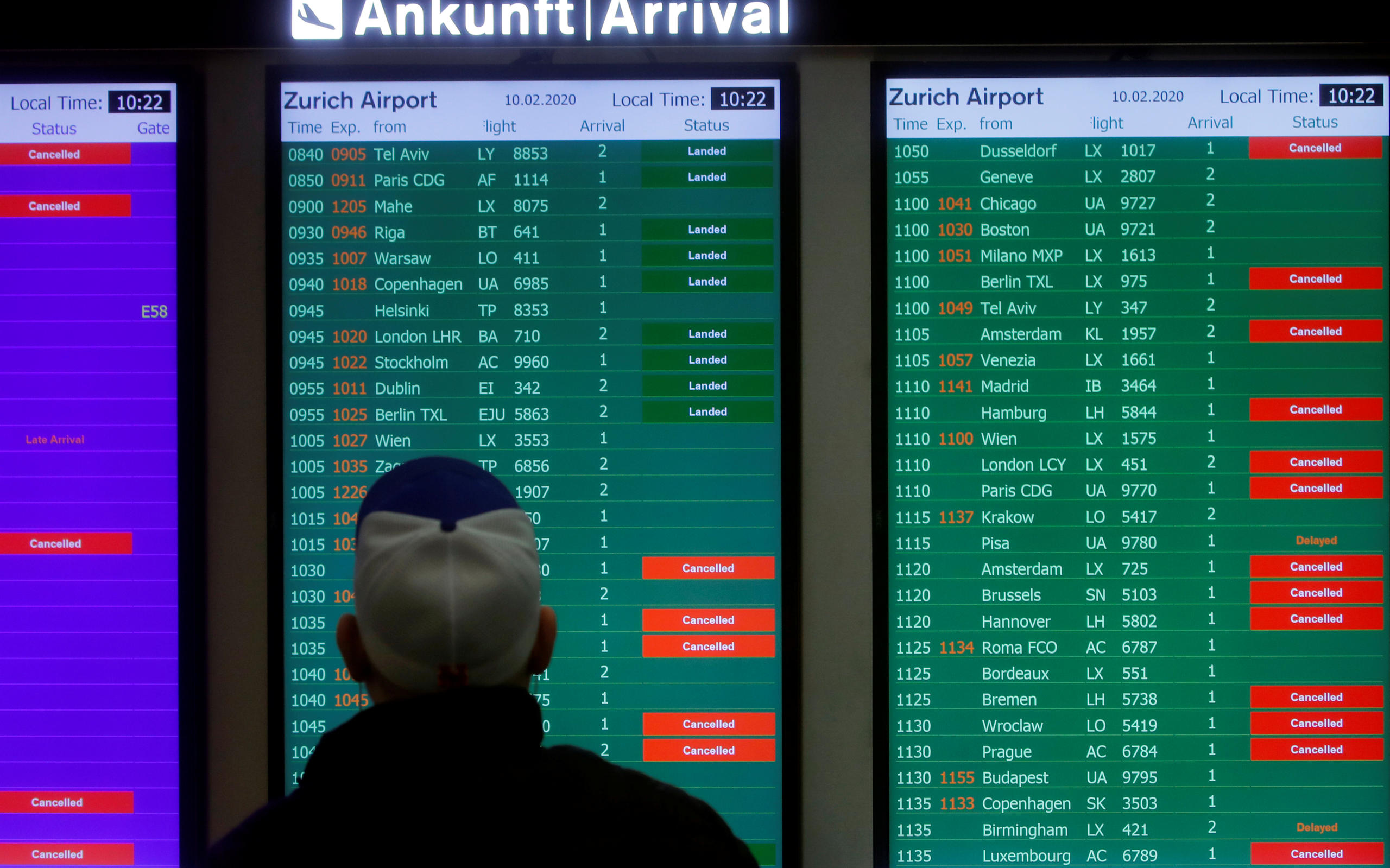
Switzerland begins historic repatriation effort over coronavirus

With three flights for stranded Swiss tourists in South America scheduled this week and others planned to bring back the thousands who remain stuck abroad, the foreign ministry is mounting the ‘biggest organised return’ in the country’s history.
At a press conference in Bern on Monday, Hans-Peter Lenz of the foreign ministry confirmed the flights the foreign ministry had organised to bring home travellers from Peru, Colombia, and Costa Rica. Flights from all continents are being organised.
“We will continue to increase the rhythm of these flights,” Lenz said, adding that the operation could represent the ‘biggest repatriation action’ in the country’s recent history.
Some 15,000 registered Swiss travellers are currently abroad, many of them in “remote” locations, according to Lenz. The government has called on all travellers to come home as soon as possible due to global disruptions caused by the coronavirus outbreak. The foreign ministry, meanwhile, has asked travellers to register with the Travel Admin AppExternal link, where they can submit their name, contact number, and place of stay. An additional about 7,500 registered citizens over the weekend, Lenz said.
Asked about the priority that will be given to the people allowed on board such flights, Lenz said that Swiss travellers will be given first priority, followed by Swiss citizens living abroad, then citizens of ‘neighbouring countries’, and finally citizens of European countries.
Some 750 people will be brought back to Switzerland on the chartered flights from Lima, Bogota, and San José over the coming days. They must then go into self-imposed quarantine for ten days.

More
Coronavirus: the situation in Switzerland

In compliance with the JTI standards
More: SWI swissinfo.ch certified by the Journalism Trust Initiative






























You can find an overview of ongoing debates with our journalists here . Please join us!
If you want to start a conversation about a topic raised in this article or want to report factual errors, email us at english@swissinfo.ch.